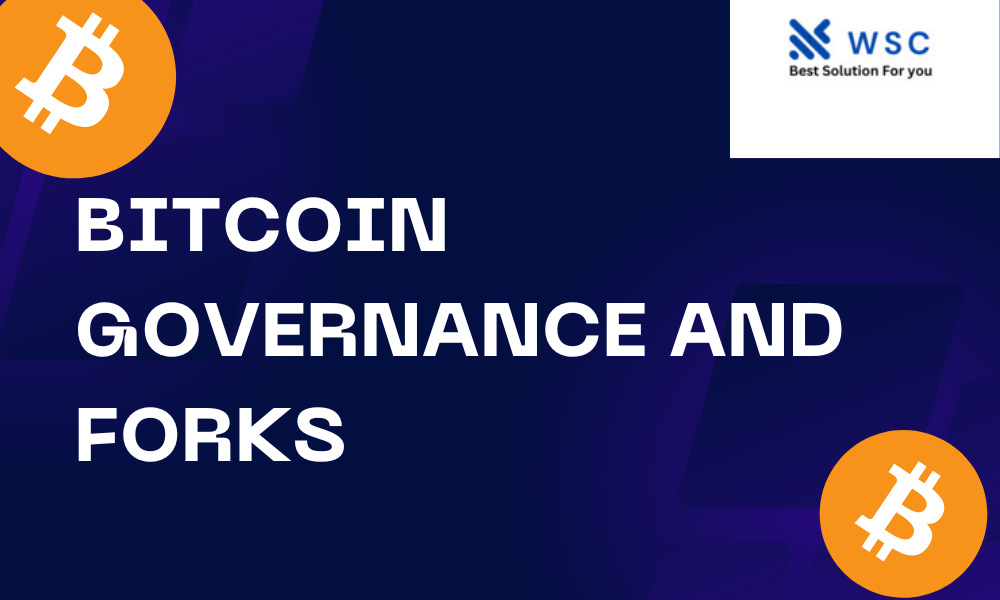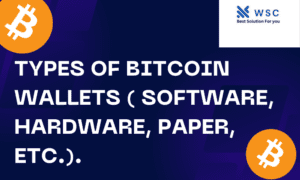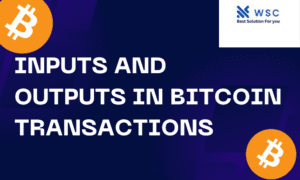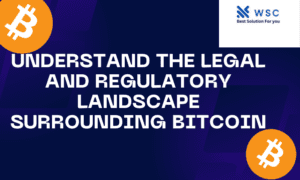Unlock the secrets of Bitcoin Governance and Forks in this comprehensive guide. Explore the role of forks, governance mechanisms, market dynamics, and future trends. Gain insights from industry experts and navigate common misconceptions. Your go-to resource for understanding the delicate balance between security and innovation in the world of cryptocurrency.
The world of cryptocurrency is ever-evolving, and at the heart of this evolution lies the intriguing concept of Bitcoin Governance and Forks. In this detailed guide, we will delve into the intricate mechanisms that govern Bitcoin, exploring the impact of forks on its trajectory and the broader cryptocurrency market.
Introduction
To grasp the essence of Bitcoin Governance and Forks, it’s essential to understand the fundamentals. At its core, Bitcoin governance refers to the decision-making processes that shape the protocol’s direction and development. Forks, on the other hand, represent pivotal moments where the blockchain diverges, creating two distinct paths forward.
Understanding Bitcoin Governance
Bitcoin’s decentralized nature sets it apart from traditional financial systems. The governance of this pioneering cryptocurrency is a collaborative effort, with the community playing a crucial role in decision-making. As we navigate the intricate web of governance mechanisms, it becomes evident that consensus is the linchpin holding the Bitcoin network together.
The Role of Forks in Cryptocurrency
Forks, though often viewed with trepidation, are natural occurrences in the cryptocurrency realm. They can be categorized into two types: soft forks, where backward compatibility is maintained, and hard forks, which introduce irreversible changes. Each type serves a unique purpose, influencing the trajectory of Bitcoin’s evolution.
Types of Forks
In the dynamic world of Bitcoin, forks come in various forms. Soft forks introduce protocol upgrades seamlessly, while hard forks demand a more substantial consensus for implementation. Understanding these distinctions is crucial for navigating the ever-changing landscape of cryptocurrency.
Historical Bitcoin Forks
Bitcoin’s history is punctuated by significant forks that have left an indelible mark on its trajectory. From the contentious Bitcoin Cash fork to the consensus-driven Segregated Witness upgrade, each event has shaped the cryptocurrency we know today.
Significance of Bitcoin Forks
The impact of forks extends beyond the technical realm. Forks influence market dynamics, community sentiment, and even regulatory considerations. Exploring their significance provides valuable insights into the resilience and adaptability of the Bitcoin network.
Bitcoin Governance Mechanisms
Decentralized governance models form the backbone of Bitcoin’s decision-making process. Understanding these mechanisms is crucial for appreciating the delicate balance required to maintain a secure and innovative blockchain.
Community Consensus in Bitcoin
The power of the Bitcoin community cannot be overstated. Consensus within this diverse and global community is the driving force behind major decisions, ensuring that the protocol evolves in a way that reflects the collective vision.
Challenges in Bitcoin Governance
As with any innovative system, challenges arise. Bitcoin governance is not exempt from controversies and disputes. Addressing these challenges head-on is essential for maintaining the network’s integrity and user trust.
Governance and Forks: A Delicate Balance
The interplay between governance and forks is a delicate dance. Striking the right balance is essential for fostering innovation while preserving the core principles that make Bitcoin a revolutionary force in finance.
The Evolution of Bitcoin Protocol
Bitcoin’s protocol is in a constant state of evolution. Governance decisions shape the direction of protocol updates, ensuring that the cryptocurrency remains at the forefront of technological advancements.
Forks and Market Dynamics
How do forks influence the broader cryptocurrency market? From price fluctuations to shifts in investor sentiment, examining the interconnected relationship between forks and market dynamics provides a comprehensive understanding.
Regulatory Considerations
Governments worldwide are grappling with the rise of cryptocurrencies. How they perceive Bitcoin governance and forks can have far-reaching implications. Navigating the regulatory landscape is crucial for the sustained growth of the cryptocurrency ecosystem.
Bitcoin Governance Best Practices
For effective governance, certain best practices emerge. From transparent communication to inclusive decision-making processes, these practices serve as a guide for maintaining a robust and adaptive Bitcoin network.
Future Trends in Bitcoin Governance
What does the future hold for Bitcoin governance? Predicting trends in this dynamic space requires a nuanced understanding of technological advancements, regulatory shifts, and community dynamics. Explore the possibilities that lie ahead.
Case Studies
Real-world examples provide invaluable insights into the practical implications of Bitcoin governance and forks. Case studies offer a closer look at how decisions unfold and their repercussions on the broader ecosystem.
Expert Opinions
Industry experts weigh in on the nuances of Bitcoin governance. Their insights shed light on the challenges, opportunities, and potential future developments in the ever-evolving world of cryptocurrency.
Common Misconceptions
Separating fact from fiction, this section clarifies common misconceptions surrounding Bitcoin governance and forks. Clearing the air on these issues contributes to a more informed and nuanced discourse.
Risks Associated with Forks
While forks are integral to innovation, they come with inherent risks. Understanding these risks and how the community mitigates them is crucial for maintaining a resilient and secure Bitcoin network.
Balancing Security and Innovation
One of the core challenges in Bitcoin governance is finding the equilibrium between security and innovation. Navigating this delicate balance is essential for driving sustainable growth while safeguarding the network.
Navigating Fork Controversies
Disagreements and controversies are inevitable in any evolving ecosystem. How the Bitcoin community navigates these challenges speaks volumes about its resilience and commitment to finding common ground.
Bitcoin Governance and Forks FAQs
What is Bitcoin Governance? Bitcoin governance refers to the decision-making processes that guide the development and direction of the Bitcoin protocol. It involves consensus among the network participants and various stakeholders.
How do Forks Affect Bitcoin?
Forks in Bitcoin create divergence in the blockchain, leading to the formation of two separate paths. They can impact the community, market dynamics, and even regulatory considerations.
What are the Types of Forks in Bitcoin?
Bitcoin experiences both soft forks and hard forks. Soft forks introduce backward-compatible protocol upgrades, while hard forks lead to irreversible changes requiring substantial consensus.
Conclusion
Bitcoin Governance and Forks are pivotal aspects shaping the trajectory of the world’s most renowned cryptocurrency. Understanding their intricacies is fundamental to grasping the evolution, challenges, and potential future developments in this dynamic ecosystem.
Check our tools website Word count
Check our tools website check More tutorial




